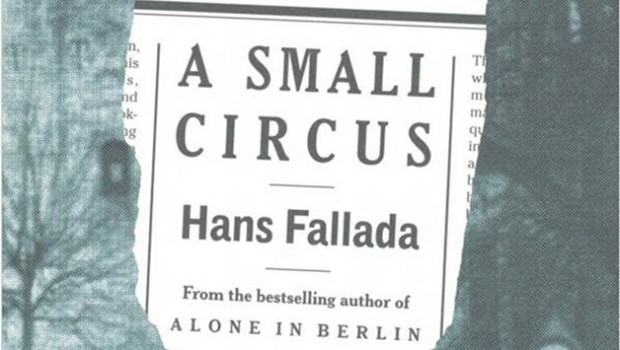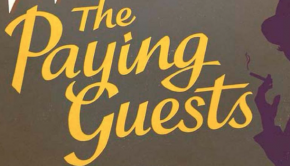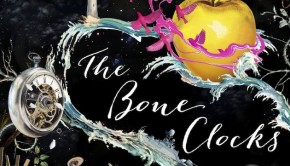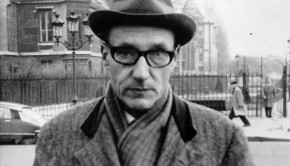A Small Circus by Hans Fallada
| Press reviews | Buy the book | Have your say |
Blurb: It is summer, 1929, and in a small German town a storm is brewing. The shabby reporter Tredup leads a precarious existence working for the Pomeranian Chronicle – until he takes some photographs that offer the chance to make a fortune. In Krüger’s bar, the farmers are plotting their revenge on greedy officials. A mysterious travelling salesman from Berlin , Henning, is stirring up trouble – but no one knows why. Meanwhile the Nazis grow stronger and the Communists fight them in the streets. And at the centre of it all, the Mayor, ‘Fatty’ Gareis, seeks the easy life even as events spiral beyond his control. Translated by Michael Hofmann. (Penguin Classics)
André Naffis-Sahely, The Independent
“Drawing from his experiences as a young farmhand and later a reporter for a local newspaper in Neumünster, Fallada set his plot in the fictional town of Altholm, a blue-collar SPD stronghold … This novel’s genius, however, lies in Fallada’s ability to reveal Altholm’s corrupt underbelly – as well as to analyse the macabre game of musical chairs that was the Weimar Republic. Fallada gives us front-row seats to Germany’s decade-long quest for a sacrificial scapegoat that culminated in the Nazi takeover.”
Michael Pye, The Scotsman
“It ends with a kind of trial; it is as tense as any thriller but mostly it proves what we ought to have known in the first place: it is not the machinery of Alone in Berlin, the loners making their small and essential protest against the Nazis and the Gestapo hunting them down, that makes it a thriller. It is the sense of life, the risk on every page, the detail that stops you ever escaping the nightmare and the sheer forward energy of the story; the book was written, start to finish, in just four weeks.”
Charlotte Moore, The Spectator
“This is a novel without a hero. Altholm, despite its quiet provincial appearance, is an unstable conglomeration of financial, political and sexual corruption. The violence resulting from the farmers’ protest knocks the lid off a mass of seething maggots. And yet there is no villain either. Fallada condemns nobody, not the creepy paedophile Manzow who buys complicity with champagne; not murderous Farmer Banz with dynamite in his barn and nine enslaved children, ‘broad and knobbly dwarves, silent dwarves with frightening hands’.”
Jane Yager, The Times Literary Supplement
“Heavy on dialogue and bursting with characters and plots, the book has an immediacy that makes its journalistic origins palpable. As the narrative digs into every corner of Altholm to unearth the fatal malaise of the late Weimar Republic, the reader feels a bit like a reporter chasing stories … In A Small Circus, Fallada captures the moment just before the Nazis entered the German political mainstream, the volatile landscape where the circumstances that made their ascent possible were coalescing.”
Edmund Gordon, The Sunday Times
“Most of the novel is written in dialogue — often the element that fares worst in translation — and there is a stiffness to the text that was largely absent from Hoffman’s rendering of Alone in Berlin … The novel also suffers in comparison to Alone in Berlin for its lack of a single overarching story line. Nevertheless, it is a fascinating social document: a stark and sinister report from the cradle of a nation’s tragedy, and one that deserves to be kept in print.”
Jake Kerridge, The Daily Telegraph
“There is barely a character in the book who is not seedy or pathetic in some way, and yet somehow this dirge for ordinary decency has all the rollicking joie de vivre of Scoop. Fallada creates characters with Dickensian prodigality, each yokel, hack, pig and pen-pusher brought to life in Michael Hofmann’s beautifully judged translation.”
Ben Hutchinson, The Observer
“It is, in many ways, more representative of Fallada’s oeuvre than Alone in Berlin, since it vividly depicts the provincial politics and internecine squabbling of the Weimar republic (the subject of much of his best work) … If it lacks the intensity and focus of Fallada’s last book, this very lack of focus is an accurate representation of the fissiparous energy of the Weimar years: a novel without a hero for an age without a hero.”












